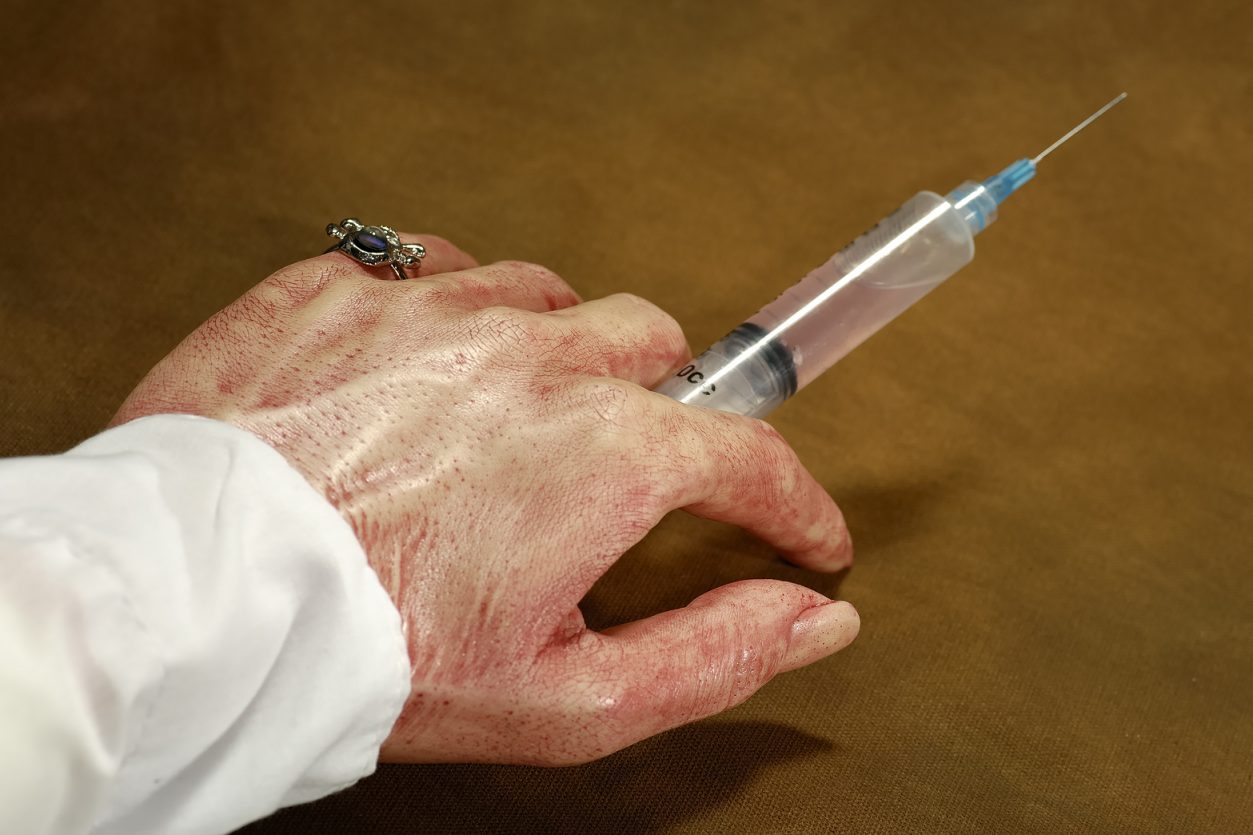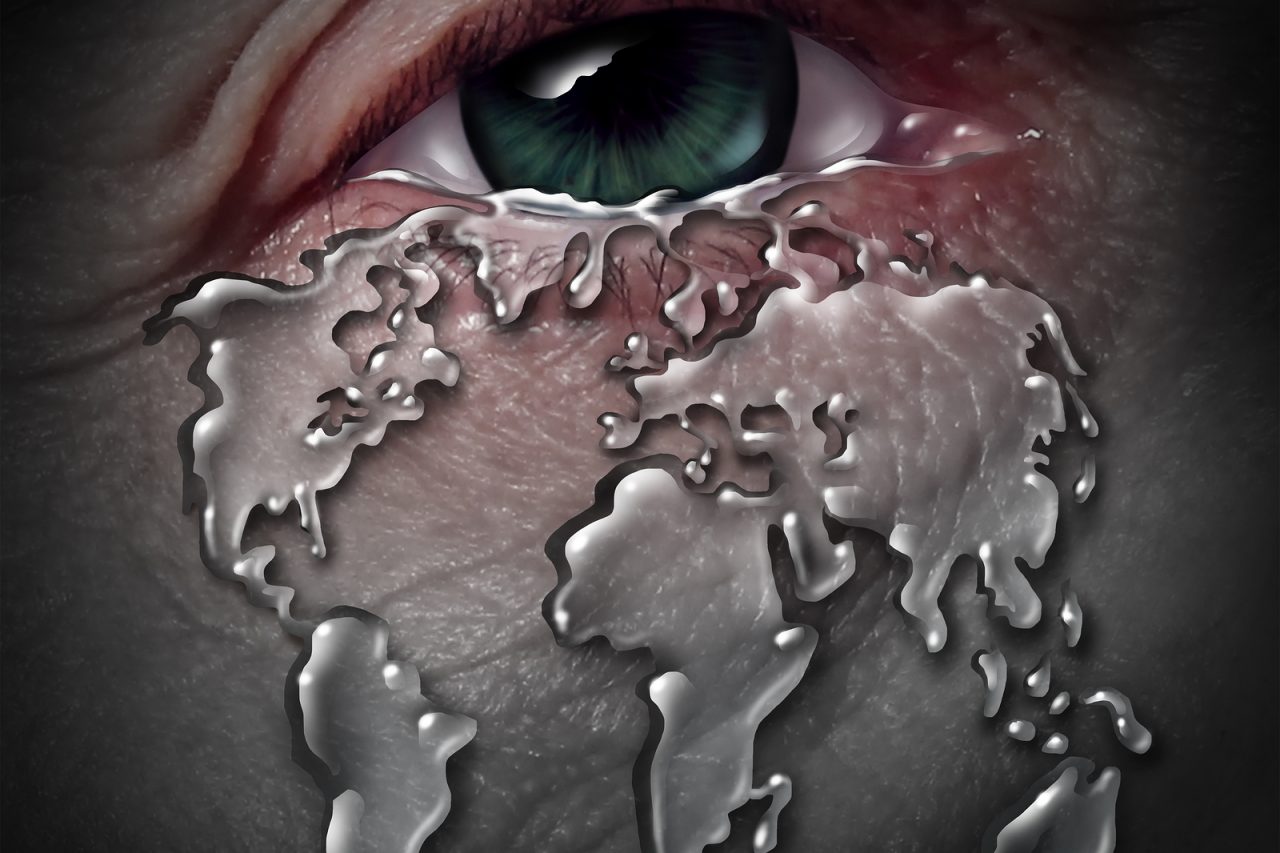I knew immediately it was a problem. It was not just that Faith’s cancer had spread with innumerable masses in her liver, golf-ball-like tumors in her lungs, punched out holes in her bones. It was not that the chemo, third round and toxic, had failed. Those were awful things. Rather it was her response as I began to tell her. As soon as I said, “I looked at the CT scan and I do not have good news,” she silenced me with an upheld palm. Faith then told her husband to leave the room.
“What does the scan show?”
“The cancer is increasing and spreading. The treatments are not working.”
“Where?”
“There is more disease in your lungs and for the first time there is cancer in your liver.”
“What does that mean?”
“It means that it is going to be very hard to bring this cancer under control. I am not sure any treatment will help.”
“Am I going to die?”
“Yes.”
“How soon?”
“I am not sure, probably in the next couple months. Maybe, sooner. We can try to treat you, but it may not make much of a difference.”
“OK. I understand. I have known that ever since the cancer came back. But, for now, I don’t want you to tell my husband, I don’t think he can handle it.”
Like I said, a problem; but in no way unique. This kind of conversation in myriad forms is common in the practice of oncology. “Do not tell my husband that his cancer is fatal.” “Do not tell my wife that my cancer is fatal.” “Don’t tell my parents I’m dying.” “We will tell the grandchildren at the funeral.” “We will talk about it when things get really bad.” “Hospice is OK, but don’t tell her she has cancer.”
It is human to maintain control and protect each other. We try not to bring pain to those we love and we avoid emotional discussion and confrontation. It is hard enough to deal with bad news without adding the social confusion of family and friends. Even compassionate doctors may aggravate the problem by accepting obstructions instead of constructing open dialog. Still, artificial distance is bad.
Two major issues arise with poor end-of-life communication. The first is decision chaos. When family members do not have a similar understanding of what is going on, are not on the same page as it were, then decisions are difficult and unstable. Perhaps a patient wishes a focus on comfort, but the family is still pushing for cure. That can end up with a terminal patient in an intensive care unit connected to machines they did not desire.
Alternatively, treatments are going well, but friends and family are drifting away, giving up or perhaps frantic for second opinions. While the patient wants to feel good about what is happening, all around them are depressed friends hanging crepe. It is hard to stay motivated when everyone is shoveling earth on your grave.
This is the second problem, a loss of natural support. Husbands and wives who have lived decades together, built careers, raised families, shared in life’s defeats and victories, are suddenly separated by a verboten conversation. A frightening black cloud hangs over, as they cannot talk about the thing that matters most, their deep love and the end of their time together. You cannot say goodbye when you do not know someone is leaving or cannot discuss the journey.
For caregivers, physicians, there are several lessons. First, it is vital to help patients open channels of communication. There is great personal, social and cultural variation among families, but the more honest the interaction the better everyone will do. It takes less time to facilitate sharing, than to repair the damage that results from unshared ignorance.
In order to get permission to talk openly to other family members, a doctor or caregiver must show that that they can give bad news in a gentle and supportive way. The person asking you to keep the bad news secret is worried you are going to cause pain and panic. The key is how you interact with that first person. If you are gentle with them, listen well, give support, and explain clearly, they will believe that you will be the same with the one they love. Then, likely, they will allow a more open discussion. When such communication is done in the presence of the patient, things tend to go even better.
Giving terrible news to those we love, announcing suffering and loss, can be the hardest thing we do in our lives. Still, it is vital that we have the opportunity and it is every caregiver’s role to help. Life is hard, but we can cope if we share it together.







10 Comments